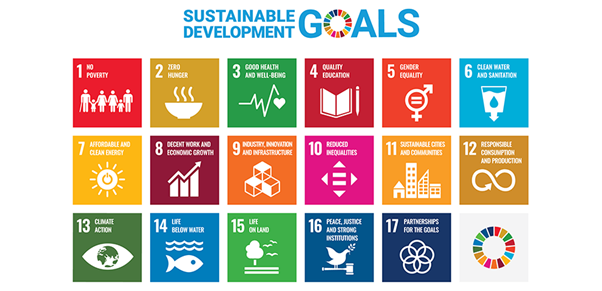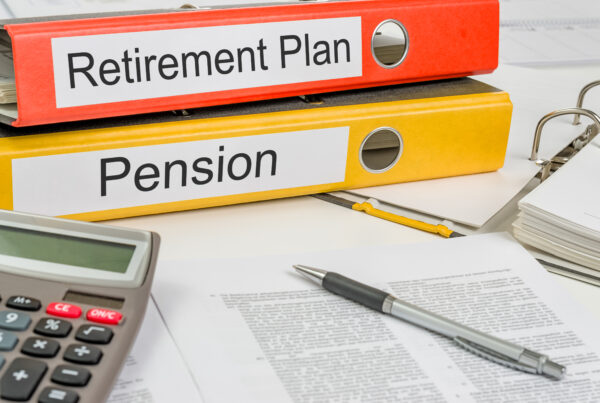How are Humans affecting Climate Change?
Recently, looking at the BBC’s series, Perfect Planet: Humans, narrated by David Attenborough (the undisputed father of the modern nature documentary), it highlighted how we Humans are changing our planet so rapidly. So, rapidly, it’s affecting earth’s life support systems: our weather, our oceans, and the living world.
Some noteworthy takeaways from the BBC series are the following.
- Globally, Humans are now responsible for the release of 100 times more carbon dioxide into the atmosphere than all Earth’s volcanoes combined.
- 80% of the energy we use, still comes from fossil fuels.
- According to new research, the average westerners carbon emissions destroy 30 sq. metres of Arctic Sea Ice every year.
- Even with extremely conservative estimates, species are disappearing up to about 100 times faster than the normal rate.
David reminds us that we have been through at least five mass extinction events, most of which have been caused by cataclysmic volcanic eruptions. It wasn’t the lava or ash that wiped out life but an invisible gas released by volcanoes: carbon dioxide or CO2. And now, we Humans are acting like the next volcano as our carbon footprint grows, to what end will it lead us?
Climate Change and Mass Migration
A 2018 World Bank Group study estimates that the impacts of climate change in three of the world’s most densely populated developing regions—sub-Saharan Africa, South Asia, and Latin America—could result in the displacement and internal migration of more than 140 million people before 2050. That many people on the move could easily lead to massive political and economic strife and significantly stall development in those regions as they seek out shelter, food a safe environment to name but a few. For this reason, the EU’s foreign and security policies have devoted increasing attention to climate-related factors.
How might this affect us living in Europe, what impact could it have on our livelihood / lifestyle?
Covid-19 and What We have Learnt?
Living in the developed Western World under a capitalist style model, we place a huge value of importance on how we live our lives and inadvertently what society expects. For many, it’s a case of getting a good education, finding the right job, saddling oneself with big mortgages / rents, bills, kids, and more liabilities to acquire material possessions to make us happy and fulfilled.
With the arrival of the Covid-19 Pandemic in March 2020 and what we experienced in the initial months thereafter, people were forced to adjust and adapt to a new way of life through a forced ‘lock-down’. For many, once the mist cleared, they discovered that while being forced to stay at home and deal with the multitude of Government restrictions imposed, it was also an opportunity to stand back and evaluate how they had been living their lives. They realised that it was a chance to make some lifestyle changes that pre-Covid was not possible due to daily family/work commitments and commutes.
So, we took to the local parks, hills, and sea. We started to walk, run, cycle more. Bikes for all age groups became the new ‘hot commodity’ as demand far outstripped supply. We stepped out into nature, reconnected with the environment, for some it was a time to look at daily habits, what do I keep, stop and start doing ? It wasn’t just confined to the physical but also the mind and spiritual became a new playground to explore and discover with people jumping to online Meditation, Yoga and Mindfulness sessions.
During the initial months of Covid, we saw various pictures taken from satellites of how our global cities could be seen free from smog and air pollution for the first time in years due to lower emission due to less movements of cars, trains, buses etc. in cities like Beijing, New Delhi, Cairo, Moscow, Mexico.
So, in these initial months and right up to the present, it was like we were able to press our ‘pause button’ , step back, do some spring cleaning and adopt some new techniques that could serve us better moving forward.
What Can We Do to Make a Difference?
In our business we are continually looking at what we can do to make a difference for the people we serve. We have spent a lot of the last 12 months reviewing how we can help and make a difference when it comes to Climate Change. As we mentioned earlier, David Attenborough has spent many decades highlighting the importance for us all to reduce our Green House Gas Emissions.
If we look at this from a domestic perspective, Yes, there are many things we can consider from installing Solar Panels on our roofs, buying an Electric Car to Retrofitting our house to a Passive Standard. While these are all very laudable options, they come at a price which in many cases is outside the household budget.
However, is there something that we as individuals can do that can really make a difference?
Over, the last number of years, we have been looking at numerous types of investments that qualify under the Sustainable category. Running a Financial Advisory business, we get approached by numerous companies asking us to review their products with a view to us adding them to our investment portfolio of options which in turn we may recommend to our clients.
What is a Sustainable Investment?
The Oxford English dictionary defines Sustainability as;
‘avoidance of the depletion of natural resources to maintain an ecological balance’.
‘the pursuit of global environmental sustainability’.
In 2015, the United Nations created 17 Sustainable Development Goals (1.) and it is within this framework that we see Sustainable Investing being part of the solution as we believe that Financial Services has its part to play.
Despite investors appetite for environmental and social engagement, many have not heard of sociably responsible investing. However, the landscape has changed and socially responsible investing gained new momentum following the Paris Agreement in 2016. In today’s market, most if not all investment companies have an ESG Fund (Environmental, Social and Governance) available within their suite of investments.
ESG generally considers environmental, social, and governance (ESG) practices when analysing an investment. We often hear the terms Socially Responsible Investing (SRI), corporate social responsibility (CSR) used when discussing ESG.
An ESG strategy should focus on well-defined goals and create a standard for measuring outcomes and considering how company business practices may impact the environment and whether these actions may impact the ability of future generations to meet their own needs.
The biggest and most prominent of the issues facing the planet are Green House Gas Emissions, namely CO2.
We carried out research on various Sustainable Investment Fund options available to Irish investors. As part of our firm’s Investment Philosophy, one of the requirements to be met was any fund reviewed needed to demonstrate there would not be a diminishing potential return to clients. The investment funds selected now form the core of our Sustainable Investment suite of Funds which are continually under review as new funds are brought to market.
We believe that the important thing about an Investment Philosophy is that you have one you can stick with, this is true for your Life Philosophy as well. We have a very simple Investment Philosophy, we take a fundamental approach. use academic input and research, where possible we minimise costs (cheap is not always best), diversify risk and always put our clients first.
We believe that this Sustainable approach has a solid foundation and are currently in the process of migrating all our investment solutions in this direction. Returns to clients in most cases are better from the results we have seen to date with the risk (ref. 3) they take on board being equal to if not slightly lower.
Dimensional Fund Advisors (DFA), one of the Fund Managers we use as a solution for sustainable investing have shared the following statistic;
“A $1million investment in the Global Sustainable Core Equity Fund is exposed to 60.8 fewer tons of CO2 emissions* per year than the same investment in the MSCI World Index Fund”.
This equates to 25,896 litres of petrol or 242,780 kilometres driven.
*(Emissions exposure is based on the representative shown for total emissions of the underlying holding in the portfolio and index given a €1 million (USD) investment. Kilometres driven in an average car. Calculated by Dimensional using data from EFA.gov ) (ref. 2).
By way of another example and to put all of the above into some sort of prospective, if we look at a new Land Rover Discovery 3.0 diesel, this emits 235g/km of CO2, so for an average of 10,000 kms driven each year, this vehicle emits on average of 23.5 tonnes of CO2.
Summary
For many of us who want to make a difference when it comes to Climate Change and help reduce our Carbon Footprint, there are various ways we can approach this;
- We can all do our bit when it comes to household recycling, food waste management, clothing recycling and reduction of the use of one touch plastics etc.
- We can upgrade our car, our house subject to having the necessary funds available.
- Or we can look at investing in sustainable funds (medium/long term investing) by switching some/all of our existing invested funds or using personal monies we have built up which we do not require in the medium/long-term.
It could be one or a combination from the above options.
If for instance, you are part of a Group Pension Scheme through work or perhaps have a Pension Scheme from a former employment (paid up), there may be the option to look at switching some or all of your existing funds to a sustainable alternative fund (Note: please ensure that you discuss any options with a qualified financial planner before making any changes to your existing arrangements).
If like in our final example of the Land Rover, you drive something similar, if you simply switch your current investments to sustainable funds, you could be saving up to 40 tonnes of CO2 each year.
A final thought, if you own or run a business, you could consider reviewing your existing Company Pension Scheme with your scheme members and explore the options of switching funds to a more sustainable solution.
Think how much a €10 million / €100 million pension scheme could save in CO2 emissions each year?
References
1.

In 2015, the United Nations created 17 Sustainable Development Goals and aimed to achieve them by 2030. These 17 SDGs have been agreed upon by all 193 United Nations Member States and it aims to end poverty, ensure prosperity, and protect the planet.
(https://www.un.org/en)
2.

3. Note: Investments involve risks. The investment return and principal value of an investment may fluctuate so that an investor’s shares , when redeemed, may be worth more or less than their original value. Past performance is not a guarantee of future results. There are no guarantees strategies will be successful).
By Accumulus Team for Life and Money Ireland http://www.accumulus.ie





Recent Comments